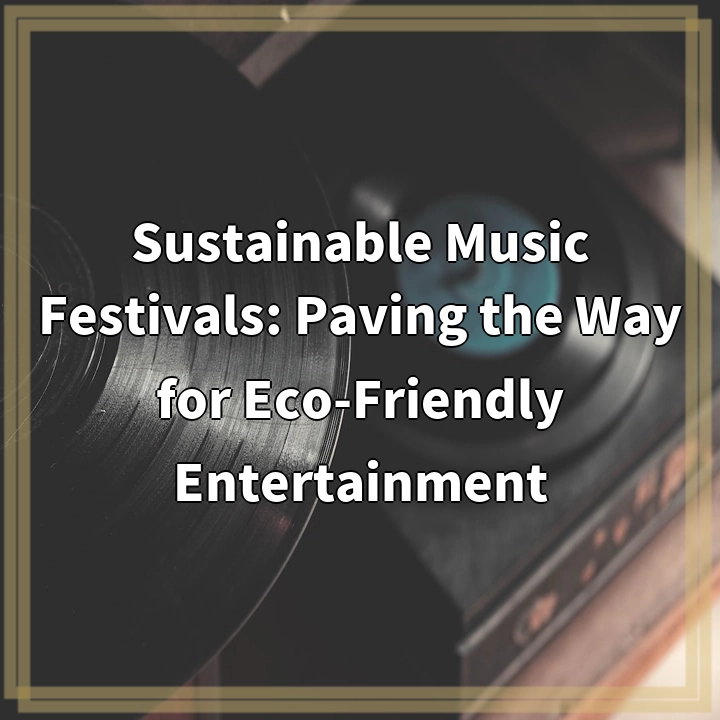
What are Sustainable Music Festivals?
Sustainable music festivals are events that prioritize environmentally-friendly practices and strive to minimize their ecological impact. These festivals aim to promote sustainability in various aspects, including energy use, waste management, transportation, and overall environmental stewardship.
Real-World Problems Associated with Sustainable Music Festivals
1. Energy Consumption:
Music festivals often require massive amounts of energy to power stages, lighting, sound systems, and other equipment. The electricity demand can have significant environmental consequences, contributing to increased greenhouse gas emissions and fossil fuel consumption.
2. Waste Generation:
Large-scale festivals generate an immense amount of waste, including food containers, drink cans, plastic bottles, and discarded camping equipment. Improper waste management can lead to pollution of nearby ecosystems and communities, impacting biodiversity and human health.
3. Water Usage:
Music festivals typically require considerable water resources, from providing drinking water to sanitation needs and maintaining lush green lawns. Insufficient conservation practices and inefficient water usage can strain local water supplies, particularly in areas prone to drought or water scarcity.
4. Transportation Emissions:
The transportation of festival-goers to and from event venues can significantly contribute to carbon emissions. Increased traffic congestion, vehicular pollution, and reliance on fossil fuel-powered vehicles can have a detrimental impact on air quality and contribute to climate change.

Solutions for Sustainable Music Festivals
1. Renewable Energy Sources:
One solution is to shift towards renewable energy sources such as solar panels and wind turbines to power festival infrastructure. Implementing sustainable energy practices can significantly reduce reliance on fossil fuels and lower greenhouse gas emissions.
2. Waste Reduction and Recycling:
Organizers can promote waste reduction strategies by encouraging festival-goers to bring reusable water bottles, implementing recycling programs, and providing composting stations. Educating attendees about proper waste disposal and implementing effective waste management systems can help minimize environmental impact.
3. Water Conservation:
Implementing water conservation measures such as efficient irrigation systems, water-efficient toilets, and water-saving practices can help reduce water consumption at music festivals. Encouraging festival-goers to use water responsibly and providing water refill stations can also contribute to conservation efforts.
4. Sustainable Transportation:
Promoting alternative and sustainable transportation options like public transit, cycling, and carpooling can help reduce the carbon footprint associated with travel to festivals. Providing incentives for eco-friendly transportation methods or arranging shuttle services can encourage attendees to choose greener alternatives.















